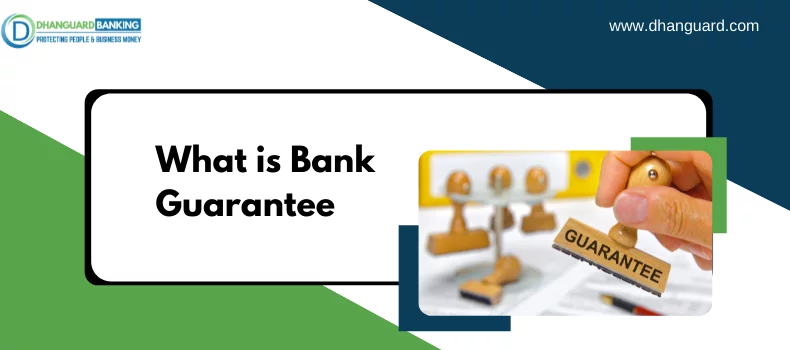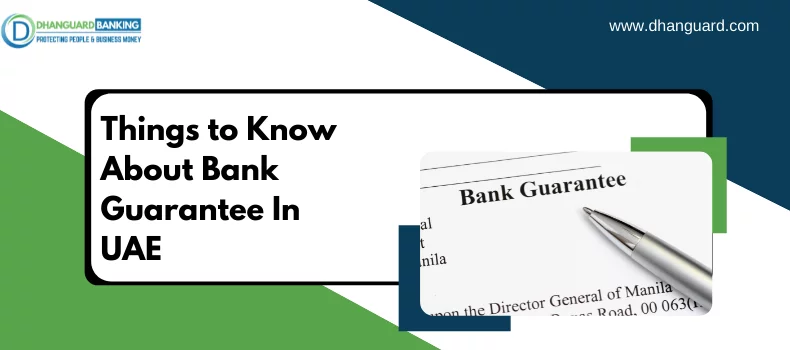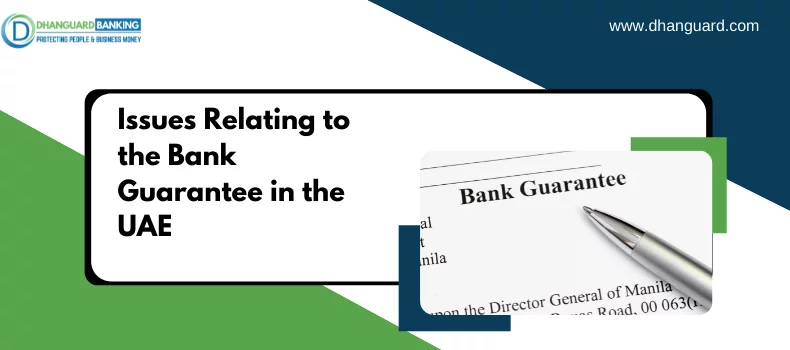A guarantee is something given as security. A bank guarantee is when a bank provides surety and guarantees for various business obligations on behalf of their customers within certain regulations. Lending institutions provide a bank guarantee, which acts as a promise to cover the customer's loss if he or she defaults on a loan. It is an assurance to a beneficiary that the financial institution will uphold the contract between the customer and a third party if the customer is unable to do so.

What is a Bank Guarantee?
A bank guarantee (BG) is a contract between three parties: the bank, the beneficiary, and the applicant. The person who accepts the guarantee is the beneficiary. And the applicant is the party requesting the bank guarantee. BGs are a vital banking arrangement that promotes both international and domestic trade.Any business is exposed to risk in some way. That is why business partners frequently use a bank guarantee to ensure the security of the negotiated transactions. A bank is obligated to pay a specified amount of money to the client if the contractor fails to fulfil the terms of the contract under such a document.
In fact, a bank guarantee is a loan product, but it is much less expensive than a cash loan. In this case, however, banks charge a commission fee, which is usually a percentage of the transaction amount.
The service of a bank in the UAE or abroad guarantee is rather appealing because it reduces transaction risks and ensures full discharge of obligations specified in the contract.
The Parties to the Bank Guarantee
Beneficiary
The natural or legal person (client) who submits a payment request and receives the payment amount from the bank.
Principal
The person who initiates the issuance of a bank guarantees (the borrower).
Guarantor
A financial institution (bank, insurance company) that agrees to pay the person named in the agreement immediately upon receiving a payment request.
How does a Bank Guarantee Work?
When the bank issues a bank guarantee, it is forwarded to the seller, who then proceeds to complete the transaction without making any upfront payment. The guarantee also specifies the time frame in which the buyer must pay the seller. Once that is completed, the bank guarantee is rendered null and void. In the event that the buyer does not pay within the specified time frame, the seller invokes the bank guarantee, and the bank is obligated to pay the seller.
With the help of an example, we'll be able to explain this better.
Assume 'company X' manufactures clothing and receives a large order. However, due to pending payments from previous orders, they do not have enough resources to purchase enough raw materials to fulfil this order.
There is now a 'company Y' that sells the raw materials required by 'company X.' However, they are hesitant to do business without an upfront payment and cannot rely solely on the word of 'company X.' As a result, 'company X' decides to apply for a bank guarantee for the total amount of the trade. After reviewing 'company X's' financials and collateral, the bank approves the guarantee and issues it to 'company Y.'
If the buyer, i.e. 'company X,' is unable to complete the payment within the time frame specified in the document, the bank that issued the guarantee will pay the seller.
When 'company Y' receives the guarantee, it will complete the transaction and supply the raw materials to 'company X,' who will then begin manufacturing the goods for the order. 'Company X' makes the required payment directly to 'Company Y' at a later date, within the time frame specified. The bank guarantee is then null and void.
Characteristics of a Valid Guarantee
- The duration of the guarantee is clearly specified.
- The guarantee is always issued for a specific amount.
- The guarantee's purpose is crystal clear.
- The guarantee is only valid for a limited time
- The grace period for enforcing guarantee rights is also specified in the guarantee.
- The guarantee expressly states the circumstances under which it is enforceable.
Bank guarantees are advantageous not only to business owners, but also to banks. They do not require immediate monetary coverage, unlike a loan. Furthermore, such payments on guarantees may be postponed for a period of time or even become unnecessary. A commission fee is charged mandatorily and in full for the provision of such guarantees.
Types of Bank Guarantees in UAE
Payment guarantee
Ensures that the delivered goods or rendered services are paid on time.
Tender guarantee (tender bond)
Ensures payment requests are met if the subsequent tenderer refuses further cooperation (cancels application, does not sign contract, etc.).
Tax and customs guarantees
Ensure that obligations to the tax and customs authorities are met.
Advance payment guarantee
Ensures that the advance payment is refunded if the terms of the transaction are not met in terms of time or volume.
Performance guarantee
Serves as a guarantee that all services, tasks, or goods deliveries will be completed in full and on time.
Time Limits of Bank Guarantee in UAE
Under UAE law, there is no requirement to include a time limit in the Bank Guarantee. If, on the other hand, a time limit is included, a Guarantee will automatically expire when the time limit is reached. However, if no time limit is stated in the Bank Guarantee, the general limitation periods or time bars provided will apply. Because UAE law does not specify a limitation period for bank guarantees, the general limitation period of ten years will apply.
What Is the Importance of a Bank Guarantee?
Adds to Creditworthiness
BGs reflect the bank's confidence in your business and, in turn, indirectly certify its soundness.
Business Evaluation
In the case of foreign transactions or transactions with Government organizations, the foreign party or a Government Undertaking is constrained and cannot assess the soundness of each and every project applicant. In such cases, BGs serve as a reliable tool for evaluating the stability and creditworthiness of companies applying for projects.
Performance Satisfaction
When new parties join the business and are skeptical about the performance of the company carrying out the project, performance guarantees help to reduce the beneficiary's risk.
Reducing Risk
Advance payment guarantees serve as a safeguard, allowing the buyer to recover the advance amount paid to the seller if the seller fails to deliver the goods or services. This protects against any potential loss that a party may suffer as a result of a new seller.
Conclusion
In a modern business setting, BGs have proven to be a huge advantage. BGs are separate contracts between the bank and the creditor that are unrelated to the underlying contract between the beneficiary and the person on whose behalf the bank guarantee is provided. For more information on other related aspects, feel free to connect with us on our website as well.
Dhanguard has a knowledgeable team that can assist you and provides hassle-free Bank Guarantee services in Dubai and UAE.
DhanGuard: All-in-One Solution for Business Setup in Dubai, UAE
DhanGuard is your ultimate one-stop solution for all your business needs. Whether you’re planning to set up a new company or expand your existing business in the UAE, we’ve got you covered with our comprehensive range of services. From Business Setup in UAE and Company Formation in Dubai to managing your financial and legal compliance, we provide everything you need under one roof.
Our services include:
- Company Formation in UAE and Dubai
- Opening a Business Bank Account in UAE and Dubai with a 99% success rate
- VAT & Corporate Tax Compliance
- Accounting, Bookkeeping, and Auditing Services
- Trade License Renewal
- Golden Visa Assistance
Let DhanGuard make your journey of Business Setup in Dubai seamless and hassle-free!










